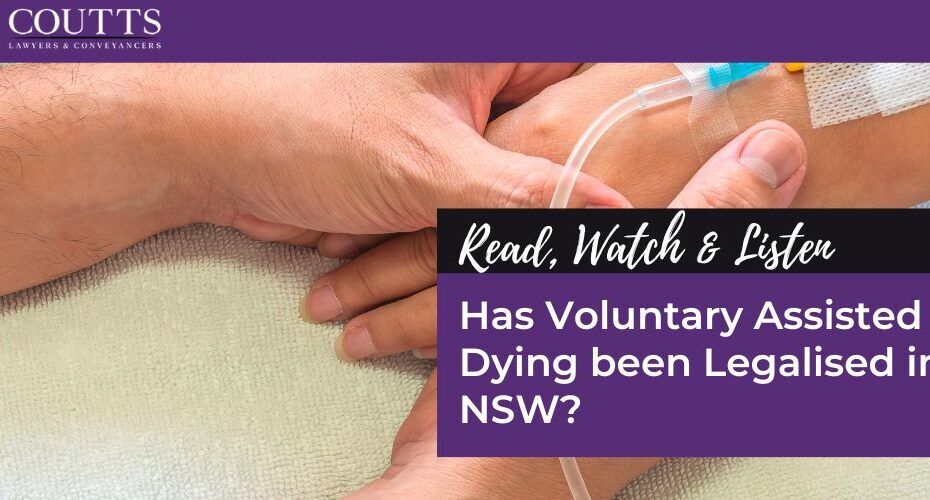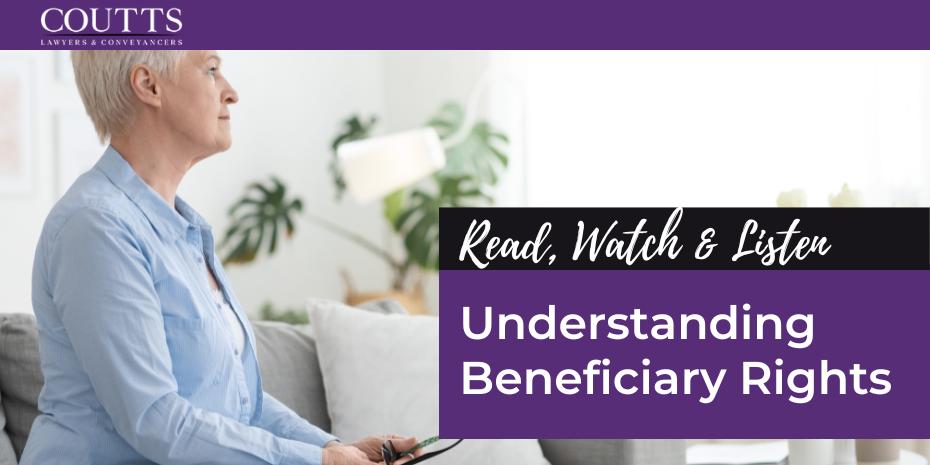KEY TAKE-OUTS
- On 19 May 2022, the NSW Parliament passed the Voluntary Assisted Dying Bill 2021.
- Relief to eligible persons who meet the criteria: a person who has decision making capacity, is over the age of 18, an Australian citizen or resident, having received a diagnosis with prognosis of 12 months (neurogenerative) or 6 months.
Is voluntary assisted dying legal in Australia?
Many people each day in Australia are faced with a diagnosis that unfortunately poses questions that divide families and the general community alike. One question being: “Should people be allowed to choose to die when they are terminally ill?”
Each person has shaped their opinion on this topic from life experience, culture, religion, and from stories shared by others. Many clients have shown me the fragility of life in my practice of Wills and Estate, as have family members lost who we hold dear. Others opposed the thought of voluntary assisted dying legislation and so the divide ensued.
After much commotion, NSW has joined all other states and territories in Australia in passing the Voluntary Assisted Dying Bill 2021 through Parliament on 19 May 2022.
What is the process of voluntary assisted dying in NSW?
Following the 18-month implementation period, terminally ill people will have the opportunity of choice. They will be able to choose when to pass away. However, they must first meet the below criteria.
Who is eligible under the voluntary assisted dying laws?
An eligible person is someone who:
- Is an adult;
- Is either an Australian citizen, permanent resident of Australia, or resided in Australia for at least 3 continuous years;
- At the time of making the first request, the person has resided in New South Wales for at least 12 months (exemptions apply); and
- Is diagnosed with an illness that is:
- Advanced and progressive;
- Causes irreversible suffering; and
- Will cause death within;
- A period of 12 months (if neurodegenerative); or
- A period of 6 months (if not neurodegenerative).
A person must also have ‘decision-making capacity’ (see also: Capacity & Estate Planning for an understanding of testamentary capacity when considering your estate planning).
Decision-making capacity is defined to mean that the person is able to understand:
- Information or advice about voluntary assisted dying;
- Matters involved in a voluntary assisted dying decision; and
- The effect of such a decision on their life and the effect more broadly.
Additionally, a person must be acting voluntarily and not be under pressure or duress.
Who isn’t eligible under the voluntary assisted dying laws?
A person is not eligible for access to voluntary assisted dying merely because the person has a disability, dementia or a mental health impairment. A person who has permanently lost decision-making capacity will not be able to choose to pass away under the NSW voluntary assisted dying laws.
The loss of decision-making capacity also effects preparation of your estate planning documents. In order for a person to prepare a Will, Enduring Power of Attorney and/or an Enduring Guardianship the lawyer must first make an assessment that the person has testamentary capacity in order to create such documents. Note: an Attorney appointed under an Enduring Power of Attorney is unable to amend any estate planning documents.
I’m eligible, what now?
Once a person is eligible under the NSW Voluntary Assisted Dying laws, they must make a formal request where two trained senior doctors will conduct an in-depth assessment. If a person passes these assessments, then they will have the choice between self-administration or a having a health practitioner administer the required medication.
Under this legislation, a voluntary assisted dying board will oversee the administration and processes in place.
The person will be afforded the opportunity of choice. They may then choose where they want to pass away and when. Importantly, this may allow people to find peace. For example, they may choose to be comfortable at home with their family instead of palliative care.
Estate Planning for people considering voluntary assisted dying
The passing of this bill takes me back to the grassroots of what our Wills and Estate Team is here to achieve – peace of mind. Please do not hesitate to reach out should you wish to consider your Estate Planning needs including your Will, Power of Attorney and Enduring Guardianship. To learn more about Estate Planning and Estate Administration generally, I encourage you to take a listen to our podcast episode: Estate Planning Debunked.
For further information please don’t hesitate to contact:
Contact our Campbelltown Lawyers today.
This blog is merely general and non-specific information on the subject matter and is not and should not be considered or relied on as legal advice. Coutts is not responsible for any cost, expense, loss or liability whatsoever in relation to this blog, including all or any reliance on this blog or use or application of this blog by you.



